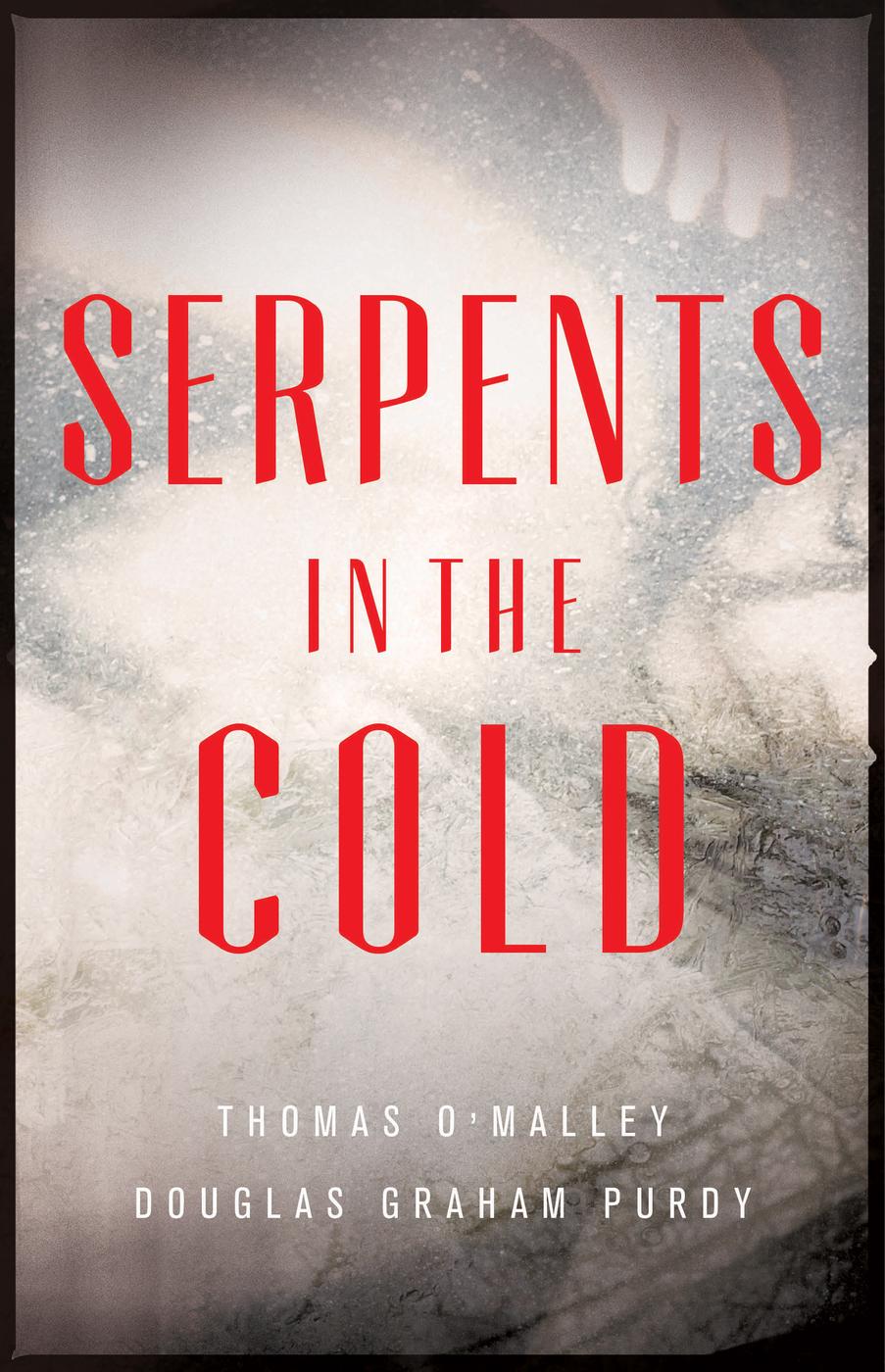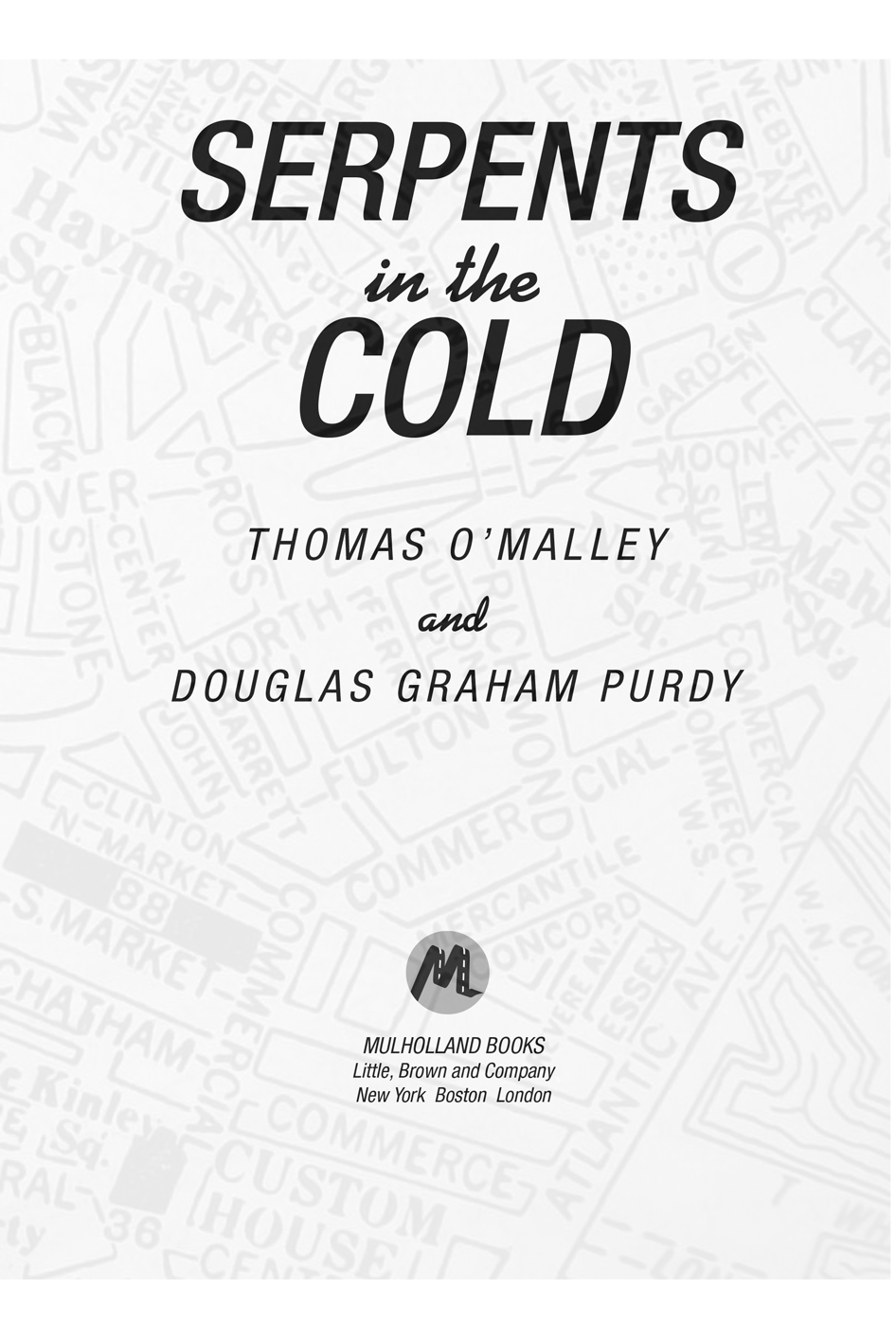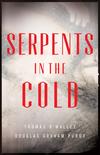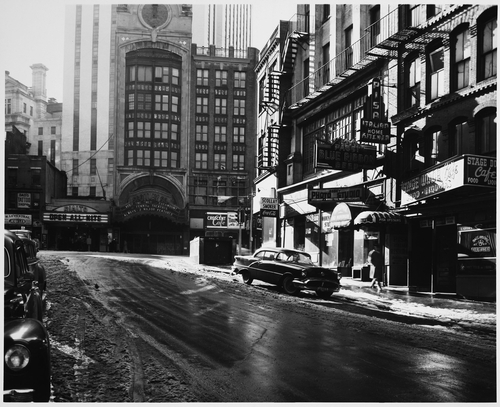Serpents in the Cold
Read Serpents in the Cold Online
Authors: Thomas O'Malley




In accordance with the U.S. Copyright Act of 1976, the scanning, uploading, and electronic sharing of any part of this book without the permission of the publisher constitute unlawful piracy and theft of the author's intellectual property. If you would like to use material from the book (other than for review purposes), prior written permission must be obtained by contacting the publisher at [email protected]. Thank you for your support of the author's rights.
For Dorothy Purdy,
Dot from the Dot
&
Bartley O'Malley,
“The Mayor of Boston”
Local 223
Â
Sicut Patribus, sit Deus Nobis.
May God be with us, as he was with our fathers.
âMotto on seal of Boston
Â
In Boston serpents whistle at the cold
.
âRobert Lowell
Â
ï
Port Norfolk, Dorchester. February 1951
SNOW HAD FALLEN
during the night, and in the gray-blue before dawn it shrouded the street with a glittering mica that caught the glow of street lamps and reflected the light like shards of glass. Holding tight to the dog's leash, the childrenâtwo girls and their young brother between themâclosed the screen door to the house softly behind them so as not to awaken their father, who worked the second shift at the Edison plant across the bay in South Boston. They whispered to the straining dog, telling him to be quiet, to stop making such a racket, that there would be hell to pay and the back of Daddy's belt if he didn't quiet down.
The children shuffled down the steps from the porch, fine flakes of snow swirling from their boots, and made their way down the street toward Neponset and Tenean Beach, where the dog liked to run, chasing gulls across the frost-packed sand. As they came down Pope's Hill, they could see a few cars and tractor-trailers moving like dark shadows on the highway, motors rumbling, headlights pushing against the darkness. The dog, familiar with their route, lifted his snout and, nostrils piqued by the scent of brine and bird, scrabbled at the snowfall beneath his paws.
“Dammit! Be still!” the elder girl shouted and yanked on the leash. With her other hand she held tight to her young brother, who trudged so slowly that both sisters had to drag him along the pathway to the beach. Saw grass and spindly gorse shuddered at the path's edges as they passed the dark façades of sleeping triple-deckers from which, here and there, a single kitchen or bedroom light blazed against the dark, and then the silent, abandoned marina, the crumbling wooden pylons and spars of the deserted marine salvage and boatyard.
The children paused for a moment, their breath smoking the air. A great sheet of ice stretched a hundred yards out into the bay, and there lay a second shore, a ragged border against which the sea hissed and boiled in dark waves, pressing the ice back in large, sharp-looking spears. Points of light pulsated in the sky, and then a plane emerged from the dark bound for Logan. As the plane passed overhead, the children craned their necks to look at its markings, the eldest calling them out and the others nodding and then watching the blinking wing lights receding over the Calf Pasture and into darkness.
A mist swirled in off the ice pack and drifted here and there, a pale silver sheen fogging the beach. Distantly, buoys clanged; boats sounded their horns in the passage and narrows beyond the beach. The dog lunged forward, breaking the girl's hold upon his leash, and raced toward the pylons before the salvage yards where the saw grass bunched and curled in frozen spikes and the ice lay smashed against the spars and throbbed with the current. There was something there and the dog was at it.
“Sam!” she called after him, “leave that alone!” and pulled on her brother's arm as she ran ahead. And then they paused. A few yards before them, half-submerged in the muck yet frozen erect, was the naked body of a woman. They stared at her blue-hued, rigid limbs, her silvering skin, the jut of her hips, and the prominence of her rib cage, her bare, mottled breasts.
They stared at her open mouth, parted as if in surprise, and at her wide-eyed gaze, clouded pupils looking beyond them at some invisible and inevitable horror. And then there was the other mouth: the gaping, torn folds of her neck from which blood hung in thin frozen ropes down to her chest. The children stood there, holding one another's hands, as the morning mist swirled about them. Strakes of snow whirled, snakelike, across the frozen shoreline, and the dog continued to bound about them, sniffing the body and then barking again, the sharp sound of it roiling out across the empty bay to the giant Boston Gas tanks, toward Savin Hill, and the lights of the city blinking in the distance beyond.
 |
 |
_________________________
Scollay Square, Downtown
IN WINTER, IN
daylight, Scollay Square was a cold and desolate place. The neon lights that brightened the avenues and alleyways at night remained unlit and encased in ice. Here and there along its concrete walkways, in the doorways of betting shops and poolrooms, stood men draped in oversized coats, hats hiding their eyes, hands buried deep in their pockets. On street corners, small groups of them huddled and lit one another's cigarettes, spoke of things having little consequence. They were killing time, waiting for the night.
Kelly's Rose was a basement dive with one long window and a steel slab for a door. Those walking by wouldn't even register it as a bar. The neon sign hawking Pickwick ale hung crookedly in the lone window and was never turned on, and farther inside, the lights above the bar and booths were kept so low not even a moth would be drawn to them.
In the two-stall, two-urinal bathroom in the back of Kelly's Rose, Dante Cooper had many thoughts going at once, but he didn't have any place to put them. They spun and caught onto memories, dragging them and the rest of the junk into something vast and confusing. And there were voices, too, all conversing in his head, colliding into one cracked and unharmonious symphony. He sat in the stall closest to the wall, a tie tightly wound around his left bicep, his pants down at his ankles, a syringe resting flat on the hard muscle of his thigh. The radiator beside him tapped and echoed. He grasped a spoon in one hand and his lighter in the other, its flame bending bowl-shaped beneath the metal. The noise in his head softened by degrees, and from this quiet he could hear her call out to him, at first muted and distant, and then with clarity: a siren's voice pulled through a fog.
And then she was there with him, his dead wife, like a starlet leaning over their bed and pulling the cigarette out of his mouth and putting it in between her lips. She was in good spirits from their score the night before, and she was singing her favorite song, “These Foolish Things.” She lay back on the bed for him, her reddish-brown hair spilled over the white sheets, her pale, naked body so thin and boyish, writhing as she sang, and then her laughter roughened by too many whiskey sours and Pall Malls.
In the stall, he tried to sing back to her, but his mouth felt leaden and his tongue numb.
Oh, how the ghost of you clingsâ
The tablet started to sizzle and turn the right shade of horse. He bit into his bottom lip and tried to steady his damaged left hand, unable to straighten his thumb and index finger fully. It had happened before, an upturned spoon, or a syringe in pieces on the floor.
He rolled up a tiny piece of cotton and dropped it into the spoon. He picked up the needle off his lap and carefully dipped it into the liquid, sucking it up and filling the glass syringe with dirty gold. He held his breath, steadied his arm, and made a fist so tight his raw knuckles paled. He maneuvered the tip of the needle over a vein, found the right spot, and leaned forward as he pushed down on the plunger. A slight eruption of blood escaped into the syringe and then, after a charged pause, all disappeared under his skin and inside. Dante yanked the tie from around his bicep and reclined backward. It never took long.
The lone light in the bathroom turned pink and soft, flickered, and then went black.
These foolish things remind me of youâ
The great emptiness swallowed up the chorus playing in his head, leaving nothing but a cathedral-like hum, until there were voices at the stall door, and the world about him shuddered.
“Blowing up another vein, Dante? I'm surprised you have any left. Advice to a lowlife addict, okay? Just make it easy so Ski here don't need to break the fucking door.”
Dante opened one eye. The door to the stall was vibrating under somebody's fist. He opened the other eye. Two reptilian shadows crept along the floor by his feet.
“C'mon, it's not worth it, li'l man. You know why we're here, so let's just make it easy. I like easy.”
He struggled to return to the memory of Margo on their bed. He closed his eyes and tried, but she was gone.
“Don't leave me yet, Margo,” he called into the darkness.
The stall door split. With one more blow from the shoulder the lock would soon tear free.
“I'm sorry, my love,” he said. “I'm so sorry.”
I'm sorry for that bad score, sorry for not telling the truth, sorry I left you alone that morning, so fucking sorry I can't bring you back to me.
The stall door burst open and the two shadows rushed in at Dante Cooper.
_________________________
Savin Hill, Dorchester
HE HAD BEEN
in the Hürtgen Forest again, for days now it seemed, advancing in the dark beneath the dense, snow-shrouded canopies of trees through which the violent light of bomb-burst and gunfire flickered. Tracer flares ignited the cordite smoke, and with artillery explosions detonating above the treetops, clouds of phosphorescent light drifted among the tree line, through which other soldiers moved as jerky, misshapen shadows. Cal moved blindly into the clearing, falling in the muddied and bloodstained snow and realizing as he pulled himself up that he was clambering over frozen dead bodies and the parts of dead bodies: arms and legs and faces. Before him a vast fence of barbed wire stretched across the forest and upon it the bodies of soldiers dangled. One soldier, perhaps a year or two younger than himself, still struggled and twitched. Through the bullet holes on his torso pink flesh showed; white bone protruded from his shattered kneecap.
Flares lit up the sky above them and spiraled down, illuminating the clearing, and the enemy fire began again. The young man's face shone, his gaunt cheekbones pulled taut in pain. His eyes rolled back in his head and then rolled forward and stared at Cal. His breath steamed the air. Through the fog of smoke the shadows of the enemy approached, a horizon of figures shuddering in light and shadow, the silhouettes of their rifles spearing the darkness. They moved forward stabbing and then grinding their bayonets into the mounds of bodies upon the ground. Cal watched the raised, pleading arms of the victims, their pleas like the mewling of animals as they were gutted.
Hearing the sounds of the dying, the young soldier jerked his head to the left and right, twisted toward the advancing army, then back to Cal. His mouth opened and closed but no sound came. “Kill me,” he whispered. “Please kill me. Don't let me die like that.”
Cal moved closer, unholstered his automatic, and aimed it at the soldier's head. The screams were less frequent. The world was becoming empty of sound as fragments of bullets whipped around him, tearing divots in the earth and in the surrounding trees. The enemy was almost upon them.
“It's okay,” Cal said, “it's okay,” not sure if he was speaking to himself or to the young soldier. And then he believed he'd said, “I can't, I'm sorry, I can't kill you,” but he pulled the trigger anyway and shot the young soldier through the forehead. The soldier's head rocked upon his neck and then his body slumped against the wire.
Cal woke and clutched instinctively at his upper thigh, where the muscle tapered to the pelvis. The sheets were in disarray and the mattress damp at his back. At his side Lynne lay on her stomach, breathing deeply in sleep. Gray light filtered through the stained window shades and with it came the sounds from the street outside, of the city waking, cars honking on the Avenue. He could feel the winter cold sifting through the window frame, listened for a moment as a gust of wind set the panes rattling. The subtle tremors of the subway station three streets over reverberated through the timbers of the three-decker. He sat up, pulled his legs over the side of the bed. He rubbed his temples, raked a hand through his black hair. He stretched his aching leg out before him and then back again until he could feel the blood flowing warmly through itâthe pain spiking for a moment and then ebbingâand knew he could walk.
In the living room, he poured himself a whiskey, watching his hand as he did so. Then he turned on the radio, and after a moment sound crackled through the speakers. He tuned it to the
Darcy and McGuire Show
and turned it down so that it wouldn't wake Lynne, who'd worked the late shift at the Carney. He sighed, pressed the heel of his hand to a spot just above his eyelid, under the ridge of his brow, where the painâalways after a nightmareâwas the most intense. The phone rang, startling him, and after a moment of consideration, he reached to pick it up, grunted into the receiver.
It was his cousin Owen, the cop, asking him if he knew where Dante was. His head spun for a moment. He'd never been able to keep track of family even though they gathered for wakes and reunions in bars around the city at least a few times every year. Owen Mackey was his first cousinâhis father's sister's kidâthree years younger than himself and a homicide detective for Boston PD, working out of the Dorchester precinct.
“Owen,” he said. “What is it?” and then, realizing Owen couldn't hear him, he cleared his throat and spoke louder. “What is it?”
“It's Margo's sister, Cal. We found her body this morning, on the beach. It's a mess. I'm trying to find Dante.”
Cal placed the tumbler on the table.
“Cal? You still there? Cal?”
“Yeah,” he grunted, turned his head away from the mouthpiece so that he could hack and clear his throat again. “I'm here.” He glanced toward the kitchen and the clock above the sink, squinted so that its numbers emerged from blurriness into distinction: six forty. From Owen's end he could hear the early-morning bustle of the station house. He'd known that once, too: the crossover from the graveyard shift to the day, the boisterous, almost jubilant voices of the morning beat cops, cradling their coffees, some still drunk from the night before, shitbirds talking about their wives, the piece of ass they'd been with, the hopped-up kids they'd given the beat-down. He heard the clatter of typewriter keys, the distant ringing of phones, the desk sergeant hollering out duties.
“Just come down with Dante.”
“Give me an hour or so to find him,” he said. Owen said something that Cal couldn't make out, and then Cal was listening to the hum of the open line. He looked toward the bedroom.
The last three nights he'd lain awake, unable to sleep or experiencing nightmares when he did. Awake, he'd watched Lynne as she slept, and in the early a.m. as she rose and crossed the kitchen to the bathroom in the dark. Six years since the war, three since he'd been kicked off the force, and the only thing that kept him rising in the morning was Lynne and the shitty security business he'd created from war bonds and their meager savings. And lately, all of it going to shit.
He ground his teeth, swallowed the phlegm that had come to his mouth, searched the trash-strewn coffee table for a smoke, but there was none. The operator was squawking at him from the receiver, and he resisted the urge to tell her to go fuck herself. He placed the phone back in its cradle, watching his hand all the while and surprised to find it wasn't shaking.
